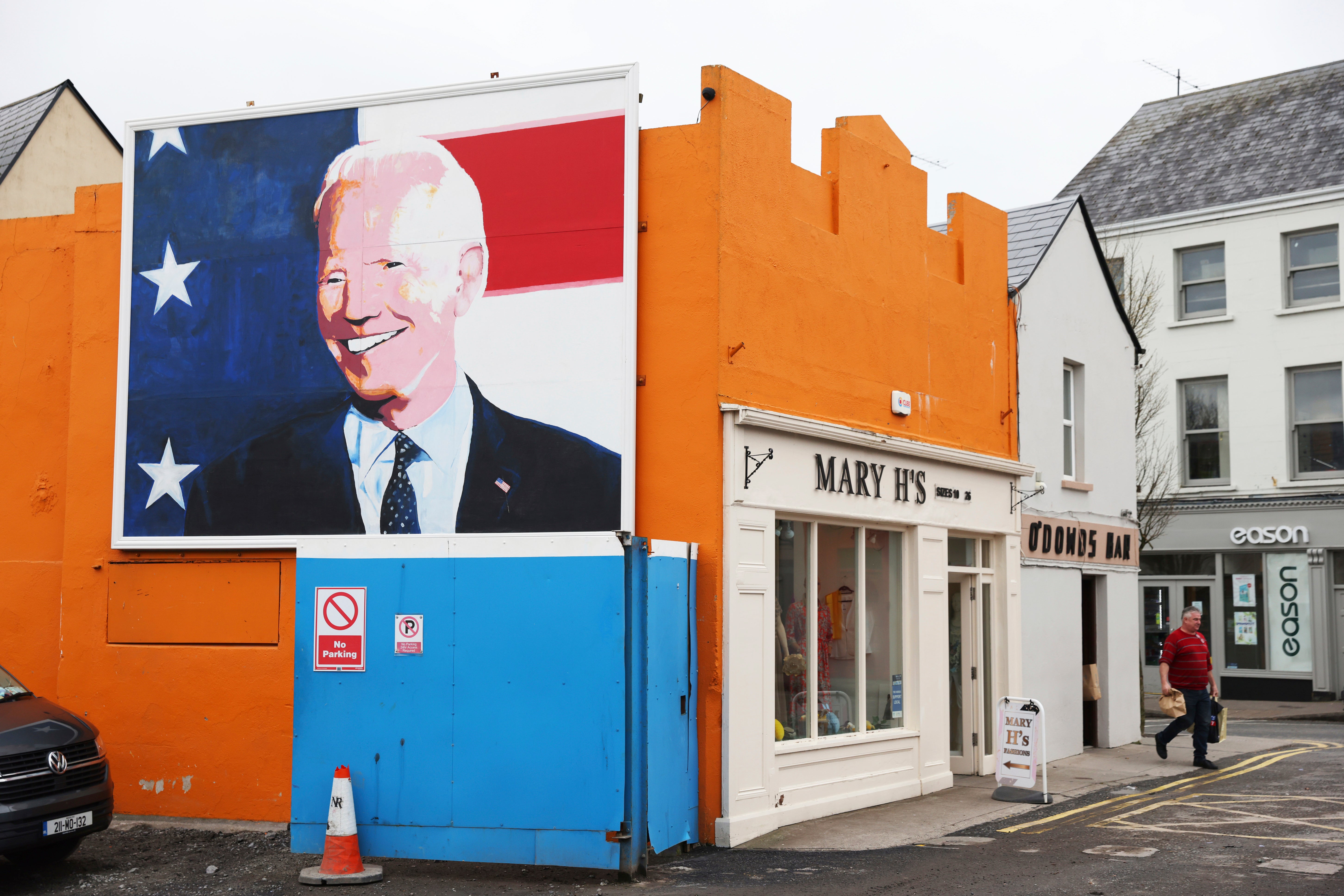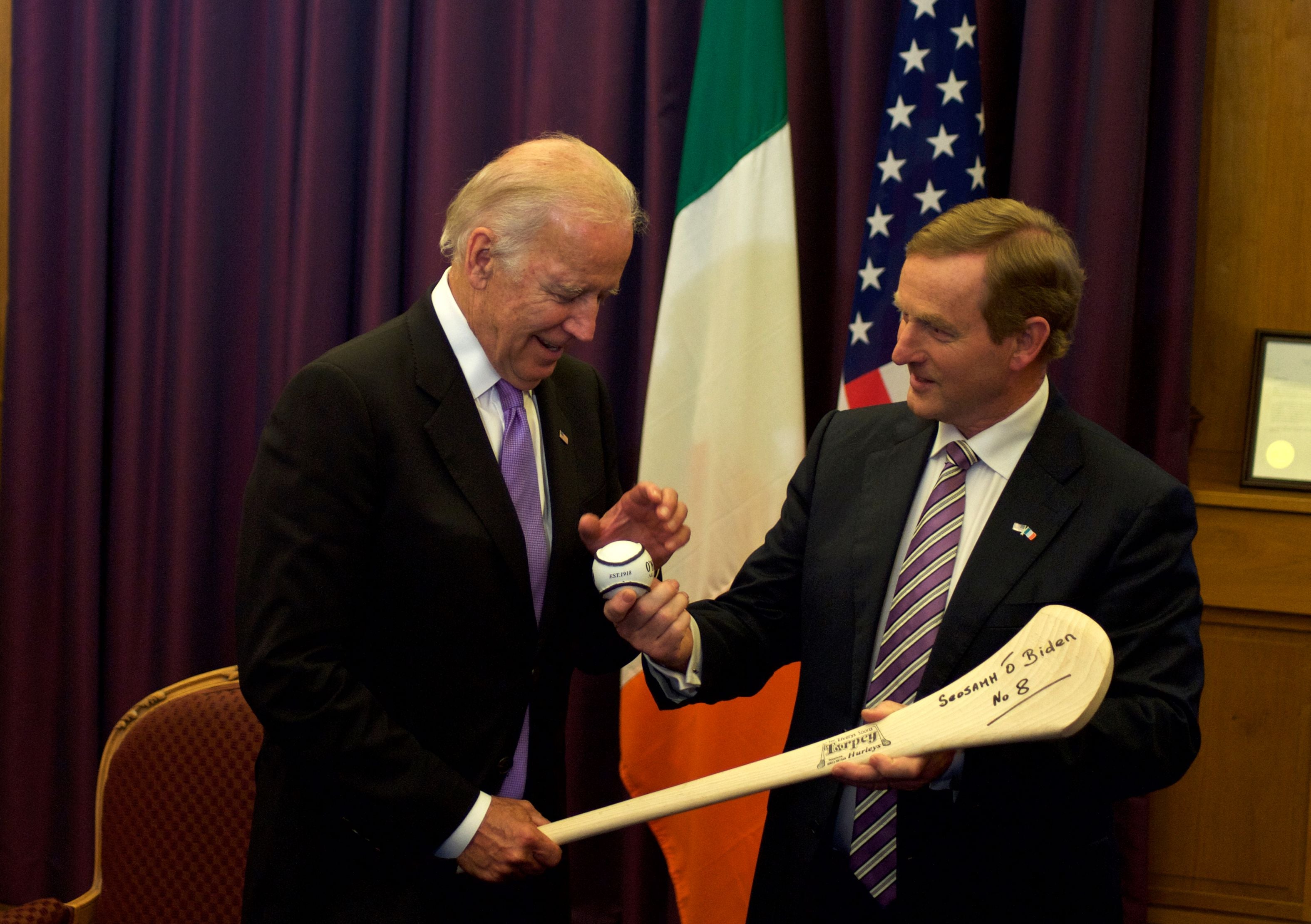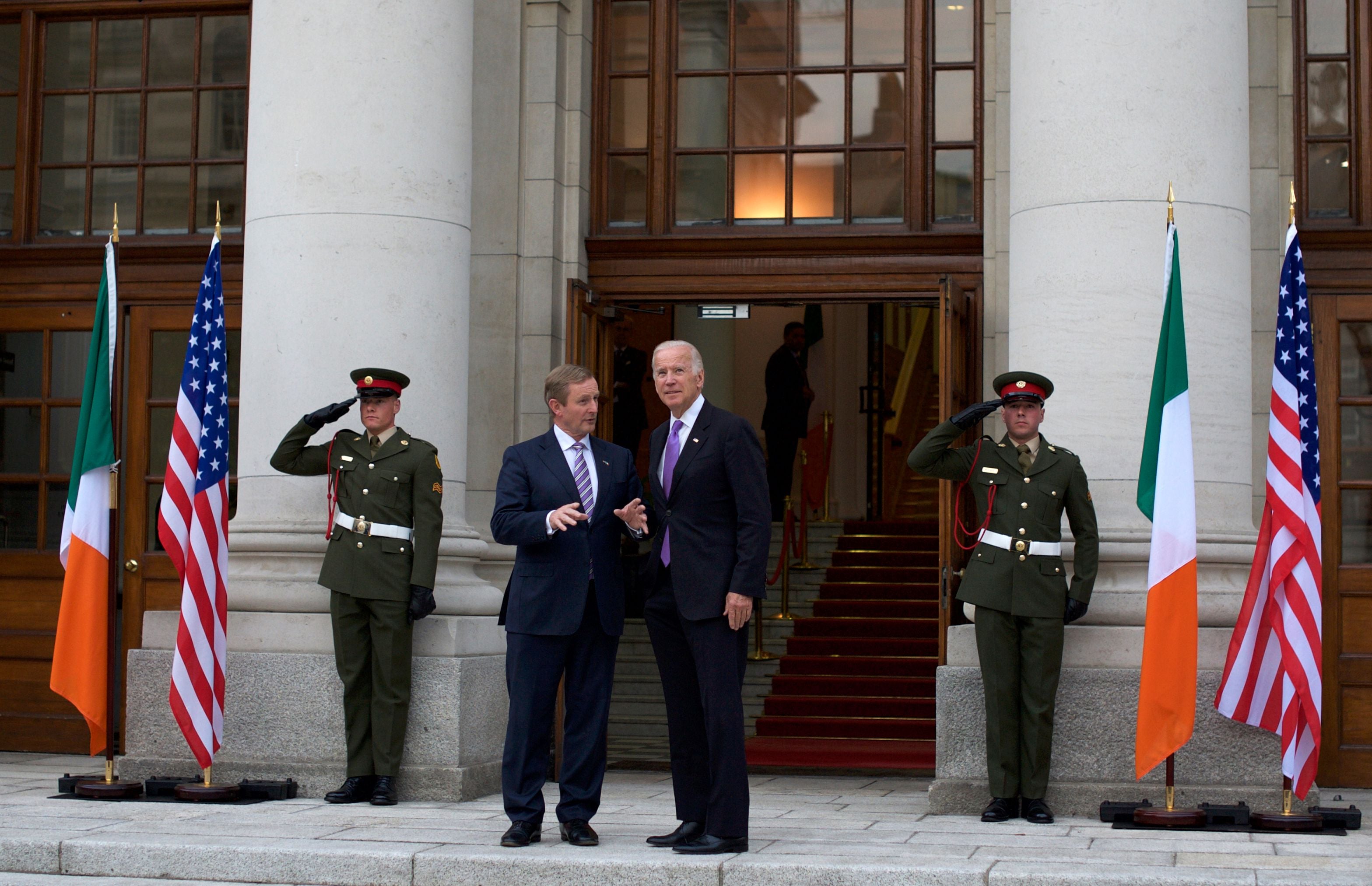Biden set to revisit Irish roots after marking Good Friday Agreement anniversary
The 46th US president – a proud Irish-American – will visit Belfast to celebrate a quarter-century of peace under the Good Friday Agreement before travelling to Ireland, Andrew Feinberg writes


Your support helps us to tell the story
From reproductive rights to climate change to Big Tech, The Independent is on the ground when the story is developing. Whether it's investigating the financials of Elon Musk's pro-Trump PAC or producing our latest documentary, 'The A Word', which shines a light on the American women fighting for reproductive rights, we know how important it is to parse out the facts from the messaging.
At such a critical moment in US history, we need reporters on the ground. Your donation allows us to keep sending journalists to speak to both sides of the story.
The Independent is trusted by Americans across the entire political spectrum. And unlike many other quality news outlets, we choose not to lock Americans out of our reporting and analysis with paywalls. We believe quality journalism should be available to everyone, paid for by those who can afford it.
Your support makes all the difference.When US television networks finally declared Joe Biden the winner of the 2020 election, the BBC broadcast a compilation of clips from Mr Biden’s long political career, including his aborted presidential runs in 1987 and 2008, and his eight years as vice-president during the Obama administration.
Of that pastiche of videos, spanning multiple decades, one short clip set the internet ablaze: a years-old exchange with Nick Bryant, one of the British broadcaster’s New York-based correspondents.
When Mr Bryant asked Mr Biden if he could offer a “quick word for the BBC”, Mr Biden quickly replied: “The BBC? No thanks – I’m Irish!”
The 46th US president is not the first Irishman to hold America’s highest office. He’s not even the first Irish-Catholic to do so. But in the 21st century, when the white ethnic enclaves and rivalries that once played a huge role in America’s political and civic life have largely fallen dormant in favour of a far more homogenised culture, he remains intensely proud of his ancestral roots in the Republic of Ireland, and has made references to his heritage a touchstone of his rhetorical style.
In his 2017 memoir, Promise Me, Dad, Mr Biden recounted an anecdote he often uses on the stump, in which he recalls his grandfather urging him to “keep the faith”.
In his public remarks, he often includes his grandmother’s reply, in which she counters that he should “spread the faith” as well. But in his book, Mr Biden noted that his grandfather also told him: “Remember the best drop of blood in you is Irish.”
Biden’s Irish roots run deep
According to the director of the Irish Family History Centre, Fiona Fitzsimmons, there’s far more than a drop of Irish blood flowing through Mr Biden’s veins.
She told USA Today that of Mr Biden’s 16 great-grandparents, 10 were from Ireland. And while a number of US presidents – including Andrew Jackson, John F Kennedy, Ronald Reagan, and Barack Obama – have traced at least some of their roots to the same island, the genealogist called the 46th US chief executive, whose family roots hail from County Derry and County Louth on Ireland’s east coast, “probably ... the most Irish of all the presidents”.
This week, that “most Irish” American president is set to make his first pilgrimage to his family’s homeland since assuming office in 2021, with a planned four-day visit to Northern Ireland and Ireland. He last visited Ireland in 2017, a year after he had made an official visit as vice-president during the Obama administration.

He’ll depart the White House on Tuesday morning, and will land in Belfast that evening. On Wednesday, he and UK prime minister Rishi Sunak will mark the 25th anniversary of the Good Friday Agreement, which ended decades of sectarian violence in Northern Ireland. He’ll then cross the border into Ireland for a three-day stay, including trips to the areas where his ancestors lived before emigrating to the US.
Because of the continuing dispute over customs checks between Northern Ireland and the rest of the UK, the Democratic Unionist Party’s boycott of the power-sharing government, which was established under the Good Friday Agreement, remains in effect, meaning that Mr Biden will not be able to address that devolved legislature.
Instead, he will deliver an address at Ulster University to mark the quarter-century anniversary of the peace accords.
National Security Council spokesperson John Kirby said on Monday that the president’s speech in Belfast would mark “the tremendous progress since the signing of the Belfast Good Friday agreement 25 years ago”, and that it would “underscore the readiness of the United States to preserve those gains and support Northern Ireland’s vast economic potential to the benefit of all communities”.
Mr Kirby said the president would also address a joint session of the Irish parliament in Dublin, where he will speak about “US-Irish cooperation to advance democracy, peace, security and prosperity” and the “shared deep history between the United States and Ireland”.
“Today, one in 10 Americans claim Irish ancestry, and Irish Americans are proudly represented in every facet of American life. Ireland is a key economic partner of the United States, and the United States and Ireland are working closely together to make the global economy more fair,” said Mr Kirby.
He added that Ireland “has also been a key partner for 21st-century challenges”, including through providing support for Ukraine, such as “vital non-lethal assistance including medical supplies, body armour, and support for Ukraine’s electric grid, as well as their agriculture”, and by welcoming nearly 80,000 Ukrainian refugees since Russia began its invasion last year.
Mr Biden’s visit also comes just days after the Belfast Telegraph reported that the Northern Ireland police service had foiled a plot by the New Irish Republican Army – a republican paramilitary group that considers itself the successor of the infamous IRA, which disarmed after the 1998 peace accords – to set off a bomb in Derry during the president’s visit there.
Mr Kirby also said the president would attend a banquet at Dublin Castle, and that he would make stops in County Mayo, including a visit to the North Mayo Heritage and Genealogical Centre’s Family History Research Unit, as well as giving a speech at St Murdoch’s Cathedral. Mr Kirby noted that the president’s great-great-great-grandfather had sold 27,000 bricks for the construction of the cathedral in 1827 – a transaction that would help pay for passage for him and his family to America more than two decades later.
“The president is very much looking forward to that trip ... and to celebrating the deep historic ties that our two countries and our two peoples continue to share,” he said.
A president who wears Ireland on his sleeve
Mr Biden’s proud touting of his Irish roots has been a constantly recurring theme in his political oratory, dating back to his decades-long career as a US senator from Delaware.
On the campaign trail, and since becoming president, he has often spoken of his great-great-great-grandfather, Edward Blewitt, who left Ireland for the US in the 19th century during the Irish potato famine and later settled in Mr Biden’s birthplace of Scranton, Pennsylvania. He has also mentioned his great-great-grandfather, Owen Finnegan, who emigrated to the US from Ireland during the same period.
The president peppers his public remarks, both prepared and off the cuff, with invocations of his Irish heritage, and sometimes alludes to negative stereotypes in a humorous way.
During one question-and-answer session with reporters, he responded to a query about tensions between the White House and West Virginia senator Joe Manchin over Mr Biden’s Build Back Better domestic programme by claiming that “some people” think he’s “not Irish” because he didn’t hold a grudge against the conservative Democrat for stalling the legislation.
At a St Patrick’s Day event last month, alongside a fellow Irish-American, House speaker Kevin McCarthy, the president quipped that his Irish heritage could be in question because he doesn’t have relatives in jail and is a teetotaller.
“I’m the only Irishman you ever met, though, that’s never had a drink, so I’m OK. I’m really not Irish,” he said.

The president is also quite fond of quoting Irish poets – including a favourite, the late Nobel laureate Seamus Heaney – and has used references to his ancestry when addressing political matters and various conflicts both at home and abroad.
In January, he referenced his family’s emigration from Ireland to the US during remarks he made alongside Mexican president Andres Manuel Lopez Obrador, as the two leaders discussed strategies for controlling irregular migration along the US-Mexico border.
“All of you know, all of us in the United States are immigrants. And mine go all the way back to the Irish famine,” he said.
During a speech in Jerusalem last year, the president compared the plight of the Irish under British rule to that of the Palestinians.
“My family is Irish-American, and we have a long history ... not fundamentally unlike [that of] the Palestinian people, with Great Britain and their attitude toward Irish-Catholics over the years, for 400 years,” he said.
And world leaders have in turn recognised Mr Biden’s affinity with his ancestral home, with one – Irish prime minister Leo Varadkar – describing him as “unmistakeably a son of Ireland” during his traditional St Patrick’s Day visit to the White House last month.
“President Biden, in your life story we see reflected the story of Ireland,” he said.
Join our commenting forum
Join thought-provoking conversations, follow other Independent readers and see their replies
Comments